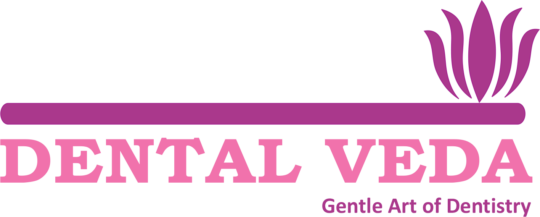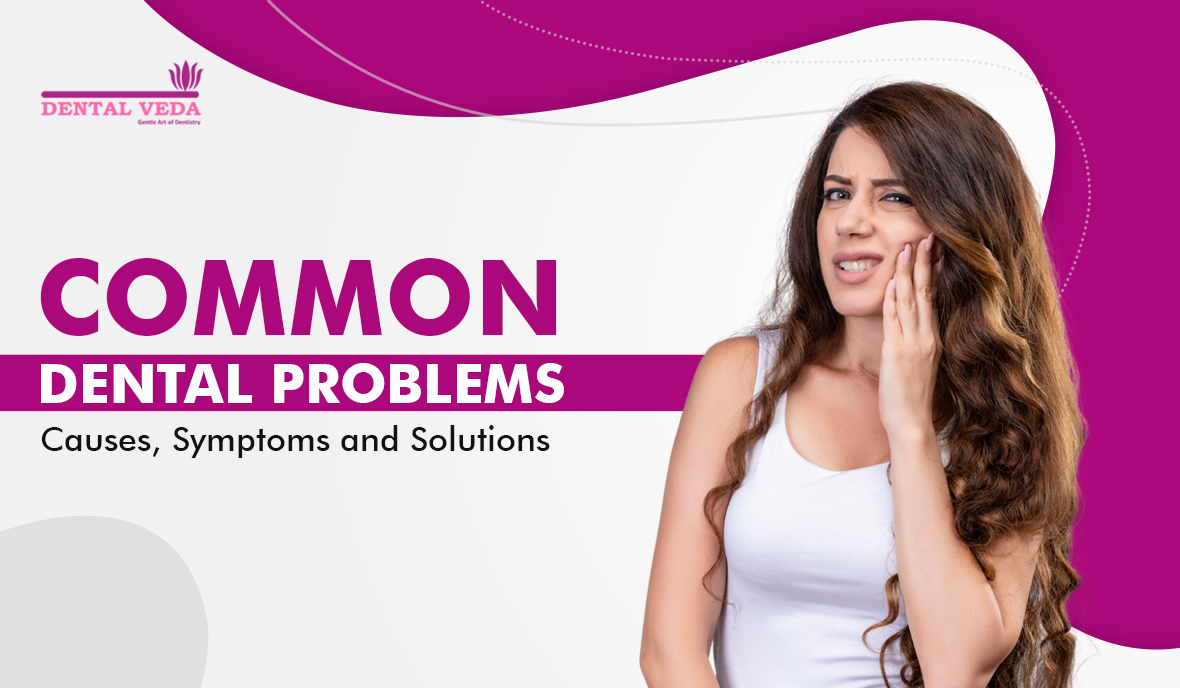Your smile is a canvas of confidence, but lurking beneath can be a host of dental problems that need your immediate attention. From unidentified tooth decay to gum diseases, these dental problems can cast a shadow over your smile and challenge your oral well-being.
But fear not. This comprehensive guide on common dental problems will help you unravel the secrets behind these common issues and provide you with the knowledge to safeguard your grin’s brilliance and maintain a captivating smile for years to come.
Toothaches
Toothaches are characterised by intense pain around a tooth or the jaw. They can be caused by various factors, such as cavities, gum infection, infection of the nerves, trauma to the tooth, or teeth grinding. If you experience a severe or persistent toothache, or it is in conjunction with swelling or other symptoms, it is crucial to seek professional dental care to identify the underlying issue.
Common symptoms of toothaches include swelling around the affected area and increased pain while chewing or applying pressure. Over-the-counter pain relievers can provide temporary relief, but consulting a dentist is essential to address the root cause. Depending on the severity of the problem, treatments can range from root canal procedures to extractions.
Tooth Decay
Also known as cavities or dental caries, tooth decay is perhaps the most widespread dental issue. It’s primarily caused by a combination of factors, including poor oral hygiene, sugary and acidic foods, and the accumulation of plaque—a sticky film of bacteria that forms on teeth. When these factors come together, they can lead to tooth enamel erosion, resulting in cavities.
Symptoms of tooth decay can vary, but they often include
- Tooth Sensitivity
- Discoloration or visible (black, brown, or grey) spots on teeth
- Bad breath
- Bad or foul taste
- Toothache or tenderness, especially while drinking or eating something hot or cold.
If left untreated, tooth decay can progress, causing more significant discomfort and potentially leading to infections.
The treatment for tooth decay will depend on the severity and stage of the decay. Your dentist may recommend one of the following treatments depending on the tooth damage:
-
- Flouride treatment:
Fluoride treatment involves applying a concentrated fluoride solution to the teeth, which helps strengthen enamel and make it more resistant to decay. This treatment is particularly effective for early stages of decay or to prevent cavities in high-risk individuals, such as children and those with dry mouth conditions.
-
- Filling:
Dental fillings are used to repair teeth that have been damaged by decay. The decayed portion of the tooth is removed, and the cavity is filled with a material such as composite resin, porcelain, or amalgam. This restores the tooth’s function and prevents further decay.
-
- Root Canal Treatment:
When decay reaches the inner pulp of a tooth, causing infection and severe pain, a root canal treatment is performed. The infected pulp is removed, and the canals are cleaned and then sealed. This procedure not only relieves pain but also saves the tooth from extraction and restores its functionality.
-
- Tooth Extraction:
In cases where decay is severe and a tooth cannot be saved, tooth extraction may be necessary. This involves the removal of the entire tooth from the socket. After extraction, options for replacing the missing tooth, such as dental implants or bridges, can be explored to restore aesthetics and function.
Preventing tooth decay involves regular brushing and flossing to remove plaque and maintaining a balanced diet with limited sugary snacks and beverages.
Gum Disease
Gum disease, also known as periodontal disease, is a prevalent oral health issue that affects the gums and supporting structures of the teeth. While often preventable, gum disease can lead to serious complications if left untreated.
Gum disease primarily results from the accumulation of plaque, a sticky film of bacteria that forms on teeth and gums. If plaque is not regularly removed through proper oral hygiene practices, it can harden into tartar, which cannot be removed by brushing and flossing alone. This buildup of plaque and tartar irritates the gums, leading to inflammation and the progression of gum disease.
Several factors can contribute to the development of gum disease, including poor oral hygiene habits, smoking or tobacco use, certain medical conditions like diabetes, genetic predisposition, and even medications that reduce saliva flow.
Symptoms of gum disease may include:
- Swollen, red, and bleeding gums
- Gum recession
- Persistent bad breath
- Loosening of teeth
- Painful chewing
Prevention and treatment of gum disease require a combination of proper oral hygiene practices and professional dental care.
-
- Oral Hygiene:
Brush your teeth at least twice a day and floss daily to remove plaque and food particles. Use a fluoride toothpaste and a soft-bristle toothbrush to avoid damaging the gums.
-
- Regular Dental Cleanings:
Professional dental cleanings help remove tartar buildup that cannot be removed at home. Regular check-ups also allow your dentist to monitor your gum health and intervene at the earliest signs of gum disease.
-
- Scaling and Root Planing:
Your dentist may recommend scaling and root planing for more advanced gum disease cases. This deep cleaning procedure removes tartar from above and below the gumline and smooths the tooth roots to prevent further bacterial growth.
Tooth Sensitivity
Tooth sensitivity is another common dental problem characterized by a sharp pain when consuming hot, cold, or sweet foods and beverages. It is often caused by exposed tooth roots, enamel erosion, or gum recession, which exposes the sensitive dentin layer of the tooth.
To address tooth sensitivity, desensitizing toothpaste can be used, which helps block the pathways that transmit pain signals. Avoiding acidic foods and drinks can also help prevent further enamel erosion. In some cases, dental procedures like bonding or fluoride treatments may be recommended to strengthen the enamel and reduce sensitivity.
Like tooth decay and toothache, tooth sensitivity can also be an indication of an underlying issue that needs immediate dental care to prevent further damage.
Teeth Grinding
Teeth grinding, or bruxism is a condition where a person unconsciously clenches or grinds their teeth, often during sleep. Common causes of teeth grinding are:
- Stress
- misaligned teeth
- sleep disorders
Over time, bruxism can lead to worn-down or cracked teeth, jaw pain, and headaches. Managing stress through relaxation techniques can help alleviate bruxism symptoms. Dentists may recommend using night guards or mouth splints to protect teeth from grinding during sleep. In cases where misaligned teeth contribute to bruxism, orthodontic treatments might be suggested to address the underlying issue.
Bad Breath
Bad breath, medically known as halitosis, is a common yet embarrassing issue that can eventually affect anyone. It can have social and psychological implications, affecting self-confidence and interactions with others. Bad breath can arise from various sources, including:
- Gum disease
- Poor oral hygiene
- Dry mouth
- Tooth decay
- Tobacco use
- Medical conditions such as kidney and liver problems, diabetes, and respiratory infections.
Combatting bad breath involves adopting a comprehensive approach that addresses its underlying causes. Here are some ways to prevent bad breath:
- Maintaining excellent oral hygiene
- Staying hydrated
- Chewing sugar-free gum
- Limiting odorous foods
- Avoiding tobacco
- Getting regular dental check-ups
- Addressing underlying conditions
Chipped or Broken Teeth
Chipped or broken teeth are dental injuries that can impact both aesthetics and function. Accidents, genetics, and various factors can lead to chipped or broken teeth.
- Accidents and traumas
- Biting or chewing hard items
- Teeth grinding
- Tooth decay
- Weakened enamel
The appropriate treatment for a chipped or broken tooth depends on the severity and extent of the damage. Your dentist may recommend any of these treatment options depending on the extent of damage:
- Dental bonding
- Dental veneers
- Root canal
- Dental crowns
- Tooth extraction
While accidents are sometimes unavoidable, you can take steps to reduce the risk of chipping or breaking teeth:
- Wearing mouthguards while playing contact sports
- Maintaining good oral hygiene
- Avoiding chewing hard objects
- Treating cavities and gum diseases
Oral Infections
Oral infections can be both painful and concerning, affecting various parts of the mouth, including the gums, tongue, and inner cheeks. Oral infections can be caused by various factors:
-
- Bacterial Growth:
Bacteria naturally inhabit the mouth, and when their balance is disrupted, harmful bacteria can multiply and cause infections.
-
- Viral Infections:
Viruses such as herpes simplex can lead to painful oral sores or cold sores on the lips and inside the mouth.
-
- Fungal Infections:
Candida, a type of yeast, can overgrow and lead to oral thrush, a fungal infection characterized by white patches on the tongue and inner cheeks.
-
- Poor Oral Hygiene:
Neglecting oral hygiene practices can create an environment conducive to bacterial growth and infections.
-
- Denture-Related Issues:
Ill-fitting dentures or inadequate denture hygiene can cause irritation and oral infections.
Symptoms of oral infections may include:
- Painful sores or ulcers on the gums, tongue, or inside the cheeks.
- Swelling or redness in the mouth
The treatment of oral infections depends on their cause and severity:
-
- Antibiotics or Antifungal Medications:
Bacterial and fungal infections are often treated with appropriate medications prescribed by a dentist or doctor.
-
- Improved Oral Hygiene:
Maintaining a regular oral hygiene routine, including brushing, flossing, and rinsing, can prevent and manage infections.
-
- Hydration and Rest:
Staying hydrated and getting adequate rest can help the body fight off infections more effectively.
-
- Proper Denture Care:
If you wear dentures, ensuring they fit well and practicing good denture hygiene is crucial to prevent infections.
Preventive Measures for Oral Health
Maintaining good oral health goes beyond addressing dental problems when they arise—it involves proactive prevention to keep your teeth and gums in optimal condition. Here are some tips for maintaining good oral health:
- Brushing and flossing regularly
- Eating a balanced diet
- Limiting sugary and acidic foods that can lead to tooth decay
- Staying hydrated
- Avoiding tobacco and smoking
- Getting regular dental check-ups
Most common dental problems can be avoided only by maintaining good oral hygiene and prioritizing preventive measures. Your oral health is a reflection of your overall well-being, and taking proactive steps can lead to a lifetime of healthy smiles. By brushing and flossing regularly, staying hydrated, and scheduling routine dental check-ups, you’re already on the path to better oral health.
Discover Exceptional Care At Dental Veda – Your Trusted Partner For All Dental Problems!
Experience top-notch dental care and comprehensive solutions to all your dental problems at Dental Veda. As the best dental clinic in Gurgaon, our team of expert dentists is committed to restoring your smile’s health and radiance. Schedule an appointment today and discover why we’re renowned as the best dentist in Gurgaon for personalized and effective dental treatments
Frequently Asked Questions
How often should I visit the dentist for check-ups?
Regular dental check-ups are recommended every six months. However, the frequency may vary based on your oral health needs and your dentist's recommendation.
Is there a connection between oral health and overall health?
Oral health and overall health are interconnected. Poor oral health can contribute to various health issues like cardiovascular disease and diabetes, while certain health conditions can also impact oral health.
How can I prevent children from developing cavities?
Encourage a balanced diet, limit sugary snacks and drinks, supervise toothbrushing until they can do it effectively, and ensure they visit the dentist early and regularly to establish good oral care habits.


